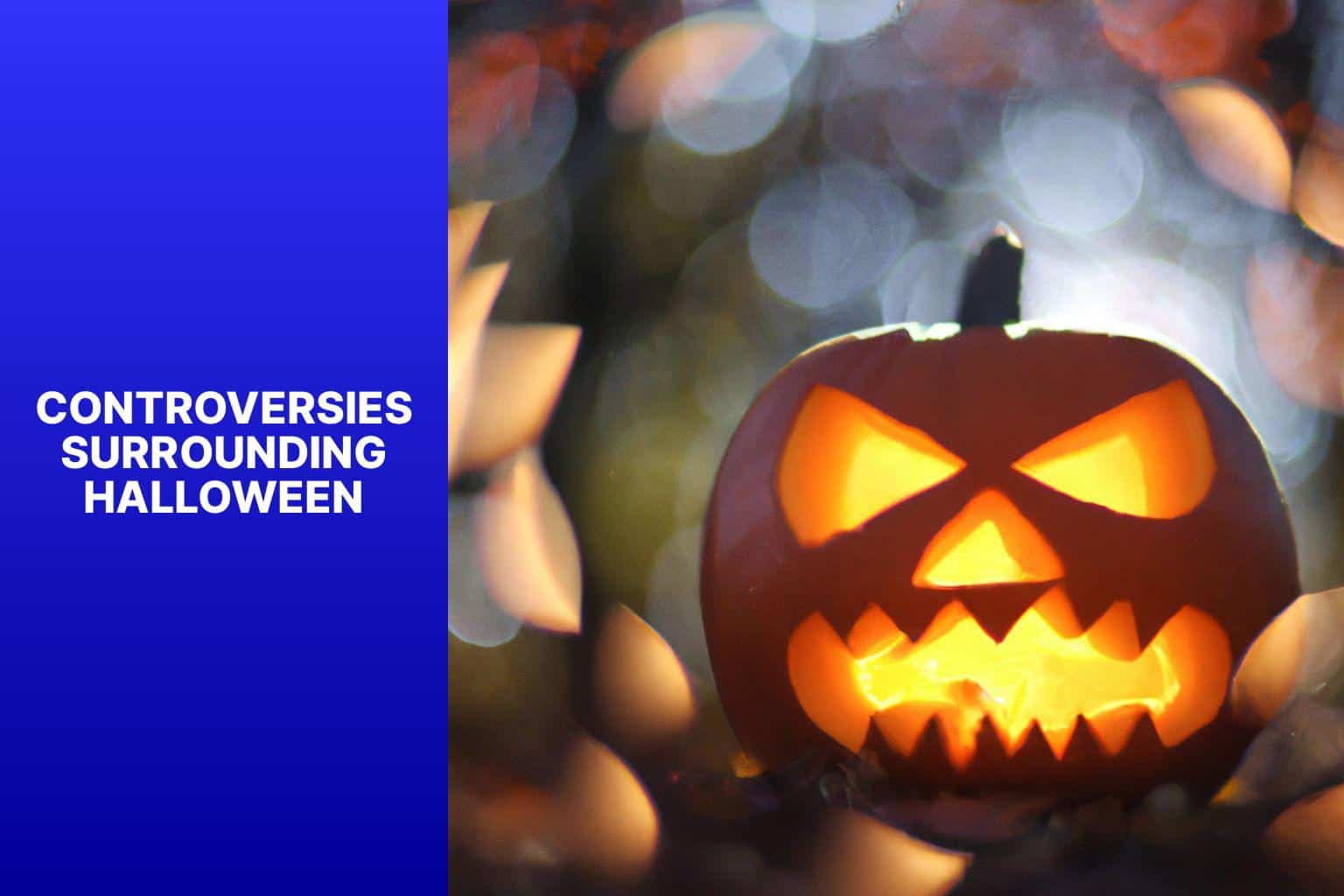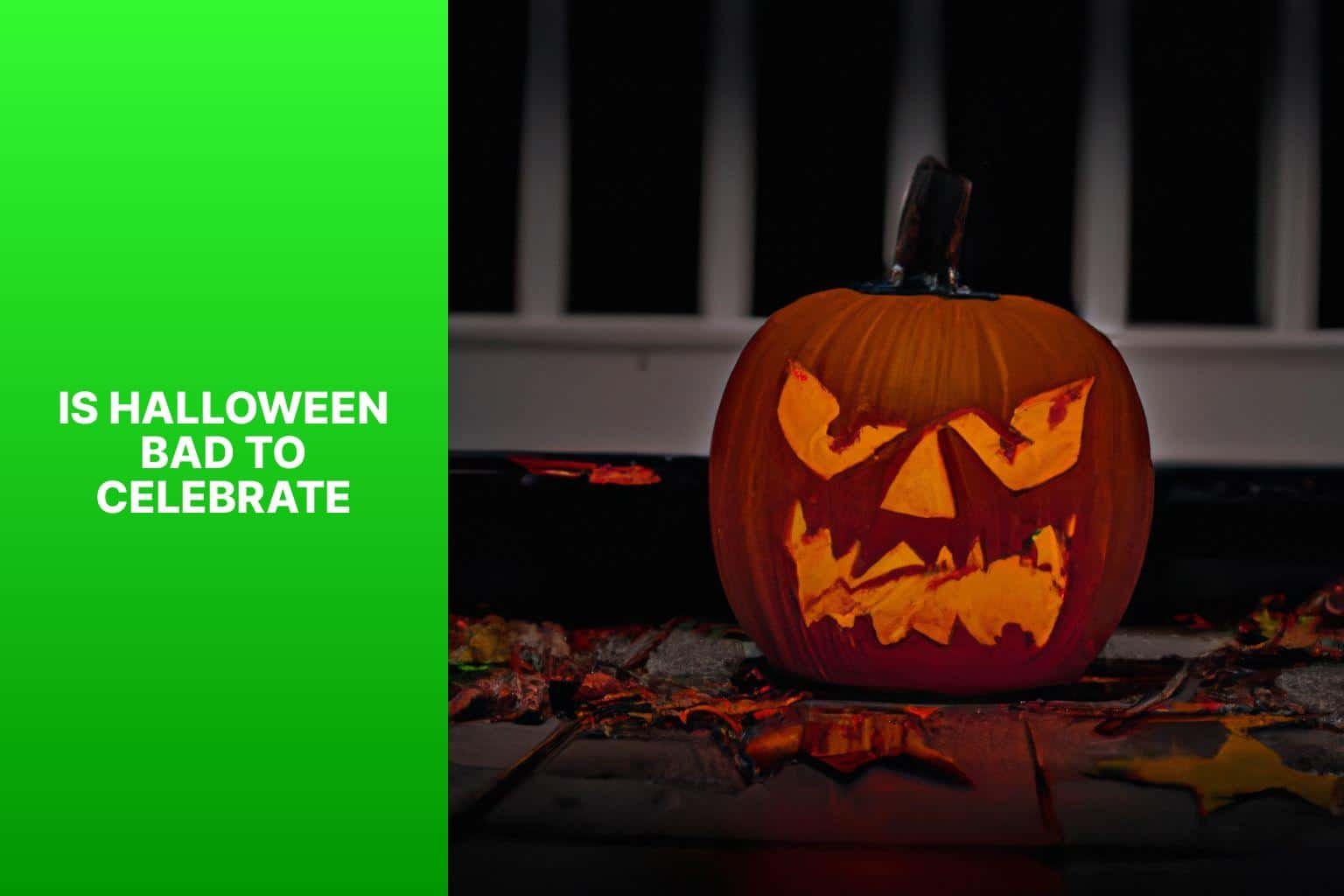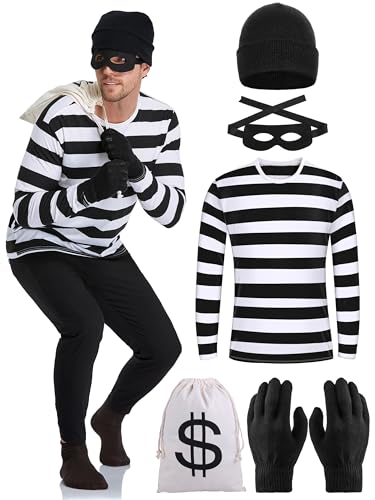Halloween, a holiday celebrated on October 31st, has a rich history and cultural significance. It originated from ancient Celtic festivals and has evolved into a popular holiday characterized by costumes, trick-or-treating, and spooky decorations. Opinions on whether Halloween is bad to celebrate vary. Let’s explore the different perspectives surrounding Halloween.
The history and origin of Halloween highlight its roots in Celtic traditions and the influence of various cultures over time. Understanding its origins can provide insights into the significance and evolution of this holiday. examining the controversies surrounding Halloween sheds light on the concerns raised by different groups. These include religious conflicts, cultural appropriation, commercialization, and environmental issues. On the other hand, there are also advantages to celebrating Halloween. It is seen as a way to celebrate tradition and culture, foster social interaction and community building, and provide opportunities for creative expression and fun. There are also cons associated with Halloween, such as religious and ethical concerns and its potential impact on the environment. In this article, we will delve further into these aspects to better understand the complexities and perspectives surrounding the celebration of Halloween.
Key takeaway:
- Halloween celebrates tradition and culture: Despite controversies and conflicts, Halloween provides an opportunity to celebrate and preserve cultural traditions.
- Halloween promotes social interaction and community building: The festive atmosphere of Halloween encourages people to come together, fostering a sense of community and connection.
- Halloween offers creative expression and fun: Halloween allows individuals to showcase their creativity through costumes, decorations, and activities, making it an enjoyable and entertaining celebration.
History and Origin of Halloween
Halloween has a rich history and origin that can be traced back to ancient Celtic traditions. This widely celebrated holiday falls on October 31st and originated from the festival of Samhain. Samhain was a significant event marking the transition from the harvest season to winter. During this time, the Celts believed that the barrier between the living and the dead was blurred, allowing spirits and supernatural beings to freely wander the earth.
The tradition of donning masks and disguises during Halloween can be attributed to the Celtic practice of confusing and warding off evil spirits. Additionally, bonfires played a crucial role in protecting against these otherworldly entities.
As Christianity spread to Celtic lands, the holiday came to be known as All Hallows’ Eve, which took place on the night before All Saints’ Day. Over time, Halloween transformed into a community-centered celebration filled with various activities such as trick-or-treating, carving pumpkins, and lively parties.
Fun fact: The popular tradition of trick-or-treating in the United States first emerged in the early 20th century and was inspired by the Scottish and Irish custom known as “guising”. Children would dress up and visit homes, either singing or performing tricks in exchange for treats.
What is the origin of Halloween?
The origin of Halloween is the ancient Celtic festival of Samhain. Samhain marked the end of the harvest season and the beginning of winter. It was believed that on this day, the boundaries between the living and the dead were blurred.
During Samhain, people lit bonfires and wore costumes to ward off roaming spirits. They also left food and drinks on their doorsteps to appease the visiting spirits. As Christianity spread, the festival became All Hallows’ Eve, the night before All Saints’ Day.
Halloween evolved and adopted traditions from different cultures. Trick-or-treating is believed to have originated from the custom of “souling” in medieval Europe, where the poor would go door to door, offering prayers for the dead in exchange for food. Carving pumpkins into Jack-o’-lanterns is said to have originated from an Irish folktale about Stingy Jack.
Today, Halloween is celebrated worldwide with costumes, trick-or-treating, parties, and festive activities. It combines ancient folklore, religious traditions, and modern customs.
Pro Tip: Understanding the origins of Halloween can deepen your appreciation for this festive holiday. Learn about the historical and cultural significance behind the customs and traditions associated with Halloween.
Historical significance of Halloween
Halloween holds immense historical significance as it can be traced back to ancient Celtic traditions. Its roots can be found in the Gaelic festival of Samhain, which denoted the end of the harvest season and the onset of winter. The Celts firmly believed that during Samhain, the line between the living and the dead blurred, enabling spirits to roam freely on Earth.
Samhain encompassed a variety of practices and rituals including the illumination of bonfires and the donning of costumes to ward off malevolent spirits. Edibles and beverages were offered specifically to appease the departed souls. These customs were subsequently assimilated into the Christian holiday of All Hallows’ Eve, which later became popularly known as Halloween.
In the late 19th century, Halloween garnered fervent popularity in the United States due to an influx of Irish immigrants. It transformed into an amalgamation of diverse cultural practices and customs. With time, Halloween metamorphosed into a jubilant celebration featuring activities such as trick-or-treating, costume parties, and vibrant decorations.
The historical significance of Halloween rests in its deep connection to ancient Celtic beliefs as well as its evolution into a widely cherished holiday. It serves as a poignant reminder of our cultural heritage and offers an opportunity for communities to unite and embrace their traditions. Halloween provides individuals with a platform to showcase their creativity through costumes and decorations, thereby injecting an element of thrill into the festivities.
Controversies Surrounding Halloween

Photo Credits: Rickyshalloween.Com by James Young
Halloween has always been a topic of debate, stirring up controversies in various spheres. From religious conflicts to concerns of cultural appropriation, commercialization, and even environmental impact, this section cuts through the noise to explore the contentious issues surrounding this widely celebrated holiday.
Brace yourself for a revealing journey as we delve into these sub-sections, shedding light on the diverse perspectives and challenges that surround the celebration of Halloween.
Religious Conflicts
Religious conflicts are commonly found in relation to Halloween due to its pagan origins and connections to occult practices. Some religious groups express concerns that Halloween can promote witchcraft, Satanism, and other beliefs not aligned with Christianity, causing conflicts with those who celebrate the holiday. Certain conservative Christian denominations discourage their followers from participating in Halloween activities, viewing them as inconsistent with their faith. These conflicts can arise within families, communities, and schools where differing religious beliefs and practices create tension. In conservative religious areas, calls for alternative celebrations or the prohibition of Halloween events have been made as a result of religious conflicts surrounding the holiday.
Cultural Appropriation
Cultural appropriation is a highly debated issue during Halloween. It pertains to the act of borrowing or adopting elements from a culture without truly comprehending or showing respect for its significance. Costumes that perpetuate stereotypes or mock cultures are often viewed as instances of cultural appropriation. It is crucial to acknowledge the harm and offense caused by appropriating aspects of someone else’s culture for the sake of entertainment.
One clear example of cultural appropriation is dressing up as a Native American or donning an African or Asian garment without fully grasping the cultural and historical context. This act reduces entire cultures to mere costumes and belittles their importance.
To prevent cultural appropriation, it is vital that we educate ourselves about the cultures that inspire us and show respect for their traditions. Instead of appropriating, we should celebrate and support cultures in a respectful manner. Opting for costumes that do not rely on stereotypes and refraining from using cultural symbols as accessories can encourage cultural appreciation.
We can select creative and unique costume ideas that do not depend on appropriation. Drawing inspiration from fictional characters, historical figures, or pop culture icons can be a fun and inclusive way to celebrate Halloween without disrespecting other cultures.
By being aware of cultural appropriation and making conscious choices, we can ensure that Halloween remains a celebration of creativity and fun without causing harm or offense to others. Let us embrace inclusivity and respect while enjoying this festive occasion.
Commercialization
The commercialization of Halloween has experienced a significant increase in recent years, with various industries profiting greatly from its popularity. The market for Halloween costumes has seen a tremendous boom, offering consumers a wide range of options to choose from. From traditional attire to costumes inspired by pop culture, individuals are allured to purchase new outfits every year.
Halloween decorations have undergone a remarkable transformation, transitioning from simple jack-o’-lanterns to extravagant displays. Retailers now provide a plethora of eerie and spooky decorations, enticing consumers to create a festive and bewitching atmosphere in their homes.
The sale of Halloween-themed candies and treats has soared. Companies have introduced limited-edition products, and consumers eagerly indulge in these seasonal delights.
The commercialization of Halloween has also resulted in a surge of organized parties and events. Companies and venues go to great lengths to attract customers with Halloween-themed experiences, such as haunted houses and costume contests.
While the commercialization of Halloween allows for celebration and the creation of memorable experiences, it is crucial to remain mindful of excessive consumerism. Consider establishing a budget for costumes and decorations, opt for sustainable and eco-friendly options, and support local businesses when purchasing Halloween-related items.
Environmental Concerns
Environmental concerns surrounding Halloween include excessive waste, energy consumption, pollution, and the overall impact on the environment. Halloween generates significant waste through costume production, decorations, and single-use items like candy wrappers and party supplies, straining waste management systems and overloading landfills.
Elaborate Halloween decorations consume excessive amounts of electricity, with houses adorned with extravagant lighting displays and animatronics emitting significant amounts of greenhouse gases, contributing to climate change. Halloween costume production and disposal, especially with synthetic materials, release harmful chemicals into the environment. The use of fireworks and firecrackers during celebrations also causes air and noise pollution.
To address these concerns, individuals can take sustainable alternatives during Halloween. This includes reusing or repurposing costumes and decorations, using eco-friendly materials, and opting for energy-efficient lighting. Organizing eco-friendly community events and using biodegradable or reusable decorations can further reduce the environmental impact of Halloween. It is crucial to raise awareness and promote sustainable practices during this festive season to avoid further harm to the environment and mitigate environmental concerns.
Pros of Celebrating Halloween

Photo Credits: Rickyshalloween.Com by Kevin Mitchell
Indulging in the festivities of Halloween comes with its fair share of benefits. From celebrating our rich traditions and culture to fostering social interaction and community building, this article explores the many pros of embracing Halloween. It offers a platform for creative expression and promises an abundance of fun. So, let’s dive into the captivating world of Halloween and discover why this spooky holiday holds a special place in our hearts.
Celebration of Tradition and Culture
When it comes to Halloween, tradition and culture play a significant role. This occasion allows communities to come together and honor the rich history and customs associated with Halloween.
1. The tradition of Halloween dates back to ancient Celtic festivals, specifically the Gaelic festival of Samhain. This festival marked the end of the harvest season and the beginning of winter, when people believed the barrier between the living and the dead was blurred. Practices like wearing costumes to protect against evil spirits and lighting bonfires have been passed down through generations.
2. Halloween also celebrates cultural diversity. Different cultures have their own unique traditions and customs related to this holiday. For example, in Mexico, there is Día de los Muertos, which honors deceased loved ones. Embracing these cultural practices allows for a deeper appreciation and understanding of diverse beliefs and customs.
3. Celebrating tradition and culture during Halloween fosters a sense of community and togetherness. Families and friends come together to participate in activities like pumpkin carving, apple bobbing, and trick-or-treating. This strengthens social bonds and creates lasting memories for people of all ages.
4. Halloween provides a platform for creative expression. People can choose costumes that represent their favorite characters or concepts and decorate their homes and neighborhoods in spooky themes. This allows them to showcase their imagination and artistic abilities.
By embracing and celebrating Halloween’s tradition and culture, individuals not only honor the past but also contribute to the vibrancy and diversity of their communities.
Social Interaction and Community Building
Social Interaction and Community Building are essential components of Halloween celebrations. Halloween fosters social interaction and strengthens community bonds through various avenues:
- Trick-or-treating: Children and adults in the community engage in social interaction while going door to door, dressed in costumes, and collecting candy from neighbors.
- Community events: Neighborhoods organize Halloween parties, parades, or festivals where residents can enjoy activities, games, and entertainment. These events offer opportunities for people to meet, connect, and form new friendships.
- Decorating and pumpkin carving contests: Communities showcase their creativity through spooky decorations and unique pumpkin carvings. Participating in these contests fosters a sense of camaraderie and friendly competition among residents.
- Community service initiatives: Some communities organize Halloween-themed volunteer activities, such as collecting donations for those in need. These initiatives promote unity and solidarity as community members come together for a shared purpose.
- Costume parties: Halloween parties are popular social gatherings where individuals showcase their costumes, dance, and have fun. These parties provide opportunities for socializing, meeting new people, and strengthening existing relationships.
Creative Expression and Fun
Halloween is a holiday that embraces creative expression and fun. It’s a time when people can showcase their imagination and originality through the design of costumes and the decoration of their homes and yards. From designing and crafting their own unique outfits to embodying different characters, Halloween allows for an abundance of creative freedom.
Not only does Halloween provide an outlet for individual creativity, but it also brings people together through various fun activities. One such activity is trick-or-treating, where children can collect candy while promoting social interaction within their communities. Parties and events offer opportunities for bonding and the creation of shared experiences, fostering a sense of belonging among individuals in a community.
It’s interesting to note that Halloween is celebrated in different countries, including the United States, Canada, Ireland, and the United Kingdom. While customs and traditions may vary, they all highlight the diverse ways in which creative expression and fun are incorporated into this holiday.
Cons of Celebrating Halloween
When it comes to Halloween, there are a few aspects worth considering that might not make it everyone’s favorite celebration. From religious and ethical concerns to the impact on the environment, we’ll dive into the cons of celebrating Halloween. So, let’s take a closer look at why some might feel uneasy about this spooky holiday and explore the potential consequences it can have.
Religious and Ethical Concerns
Religious and ethical concerns play a significant role in the discussion of Halloween.
Some religious groups raise objections to Halloween due to its pagan origins and association with witchcraft and the occult.
These groups hold the belief that participating in Halloween contradicts their religious beliefs and may have negative spiritual consequences.
Certain individuals have ethical concerns regarding the costumes and symbols utilized during Halloween, particularly if they perpetuate stereotypes or appropriate the cultural practices of marginalized communities.
It is important to note that Halloween has undergone changes and is now primarily observed as a secular holiday focused on costumes, candy, and community events.
Many individuals view it as a harmless and enjoyable tradition that brings people together.
Nevertheless, it is crucial to show respect for the religious and ethical concerns of those who choose not to participate or harbor reservations about certain aspects of the holiday.
Halloween possesses ancient roots and originated from the Celtic festival of Samhain, which commemorated the end of the harvest season and the onset of the darker half of the year.
It was believed that on October 31st, the boundary between the living and the dead became blurred, allowing spirits to freely roam.
People lit bonfires and donned costumes as a means to ward off these spirits.
With the spread of Christianity to Celtic regions, the festival of Samhain was incorporated into the Christian calendar as All Hallows’ Eve, the night before All Saints’ Day.
Over time, it evolved into the Halloween we are familiar with today, incorporating a fusion of ancient rituals, Christian traditions, and modern customs.
Impact on the Environment
Halloween has a significant impact on the environment. We must consider the environmental consequences of our celebrations.
Waste generation during Halloween involves the use of single-use decorations, costumes, and packaging, which leads to a substantial increase in waste in landfills. To minimize this impact, it is important to choose eco-friendly decorations made from recycled materials and encourage the use of reusable costumes.
Halloween decorations, especially those that require electricity, contribute to increased energy use and add to our carbon footprint. To lessen the environmental impact, it is recommended to use energy-efficient LED lights and limit their duration.
Another aspect to consider is the disposal of pumpkins, which contributes to food waste. Rather than throwing them away, it is advisable to consider composting or using them for cooking.
Excessive candy packaging during Halloween creates a lot of waste. To combat this, one can look for candies with minimal packaging or opt for bulk or package-free options.
Transportation also plays a role in the environmental impact of Halloween celebrations. Large-scale events lead to increased traffic and carbon emissions from people driving to these events. It is encouraged to support local community events and promote alternatives such as walking or public transportation to reduce the environmental impact.
Frequently Asked Questions
Is it bad for Christians to celebrate Halloween?
There is a difference of opinion among Christians regarding whether or not to celebrate Halloween. Some believe that it is a pagan holiday with demonic practices, while others see it as an opportunity to engage with their community and shine their light for Jesus. Ultimately, the decision to celebrate Halloween is up to individuals, but they should consider the principles of Romans 14 and not cause division or stumble others in their faith.
What are the pagan roots of Halloween?
Halloween has its origins in the Celtic pagan celebration of Samhain, which marked the end of summer and the beginning of winter. Ancient Celts believed that on October 31st, the boundary between the living and the dead was blurred, and evil spirits roamed the earth. Over time, Halloween has evolved and incorporated various cultural and religious influences.
Should Christians participate in the darker aspects of Halloween?
While Christians should not celebrate Halloween as a way to embrace evil, death, and darkness, they can choose to participate in a way that reflects their redeemed life and resistance against the forces of evil. Attitude, dress, and behavior should still reflect faithful obedience to God. Some Christians choose alternative celebrations, such as harvest parties or engaging in activities that promote godly values.
Are there any ways to redeem Halloween as a Christian?
Christians can redeem Halloween by focusing on innocuous costumes that are fun, creative, beautiful, and humorous, rather than glorifying evil or demonic beings. Some churches hold harvest festivals or holy events in a godly environment as an alternative to traditional Halloween celebrations. Christians can also use Halloween as an opportunity to share their faith by handing out tracts with the Gospel message along with candy.
Should Christians be concerned about participating in Halloween due to its spiritual implications?
The Bible acknowledges the reality of spiritual darkness and the presence of evil forces, cautioning believers against taking spiritual things lightly. Christians are called to resist the devil and walk in the light of Jesus, not engaging in or endorsing practices associated with satanic worship or occultism. By seeking God’s wisdom and guidance, Christians can discern how to engage with Halloween in a way that aligns with their faith and avoids unhealthy fascination with evil.
How can Christians use Halloween as a conversation starter to share their faith?
Halloween can serve as a timely opportunity for Christians to engage their community and develop new relationships. Christians can volunteer at church events, organize a haunted church with a Christian message, or simply have conversations about Jesus and the Gospel with their neighbors. By being a light in the darkness and sharing the love of Jesus, Christians can bring redemption and hope to this holiday.











